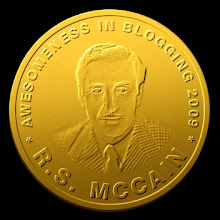 ... 145 years ago, on the morning of July 1, 1863, the Battle of Gettysburg began.
... 145 years ago, on the morning of July 1, 1863, the Battle of Gettysburg began.My great-grandfather, Pvt. Winston Wood Bolt, Co. K, 13th Alabama Volunteer Infantry Regiment, was in the opening clash of the battle. Part of Brig. Gen. James J. Archer's brigade, the 13th Alabama marched eastward from Cashtown at dawn. As the brigade approached Gettysburg from the west, they were fired on by Union cavalry videttes -- the first shots of the battle.
Archer deployed the 5th Alabama battalion in a skirmish line to chase off the Yankees, and the march was resumed. Upon reaching Herr Ridge, Archer halted while the rest of Maj. Gen. Harry Heth's division came up, along with the corps commander, Lt. Gen. A.P. Hill.
East of Herr Ridge, the ground slopes down to a small stream called Willoughby Run, with Seminary Ridge rising on the far side. There, a small body of Union troops with a battery of artillery were in line, contesting further advance. After reconnoitering and consulting, Hill and Heth ordered Archer's brigade to deploy south of the road, with Brig. Gen. Joseph Davis' brigade to the north.
About 11 a.m., the Confederate line moved forward, down to Willoughby Run and across. The 13th Alabama, commanded by Col. Birkett D. Fry, was on the right of Archer's line and thus constituted the south flank of the advance. The advance initially met with success, as the Tennessee regiments in Archer's brigade poured a heavy volleys into the Union position in McPherson's woods near the road, killing Maj. Gen. John Reynolds, commander of the Union I Corps.
However, Union reinforcements arrived on the field in the form of Brig. Gen. Solomon Meredith's "Iron Brigade." The first of Solomon's regiments to reach the scene moved toward the woods near the road to reinforce the Union line there. But the 24th Michigan, bringing up the rear of the march, deployed further south and came swarming down the hill, completely overlapping the flank of the 13th Alabama.
Outflanked and nearly surrounded, more than 100 members of the 13th Alabama were captured, along with Gen. Archer and scores of other men from the brigade. My great-grandfather was among those captured, and spent the next two years as a guest of Uncle Sam in a prisoner of war camp at Fort Delaware, where the prisoners ate rats to survive.













No comments:
Post a Comment